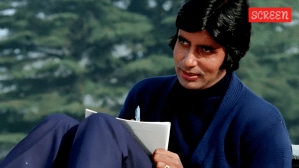China’s Special Envoy on the Middle East Issue, Zhai Jun, will visit the region next week over the ongoing Israel-Hamas conflict, state media agency CGTN reported on Sunday (October 15).
Zhai said he will “further strengthen coordination with all parties in the direction of a ceasefire, the protection of civilians, de-escalation and the promotion of peace talks.” But what has China said so far regarding the ongoing conflict, and how has its involvement in the region in recent years impacted its approach? We explain.

What has China said so far about the Hamas attack on Israel?
A few days after Palestinian militant group Hamas attacked Israel on October 7, leading to the deaths of over 1,400 Israelis so far, China’s Foreign Ministry spokesperson Mao Ning condemned acts that “harm civilians” – without mentioning Hamas. “We oppose moves that escalate the conflict and destabilise the region and hope fighting will stop and peace will return soon,” she said.
Story continues below this ad
“As a friend to both Israel and Palestine, what we hope to see is the two countries living together in peace… The key to achieving that lies in the realization of the two-state solution and establishment of an independent State of Palestine,” Mao further said.
On October 15, state media agency Xinhua reported Chinese Foreign Minister Wang Yi telling Saudi Arabian Foreign Minister Faisal bin Farhan Al Saud over a phone call that “Israel’s actions have gone beyond self-defense and it should heed the call of the international community and the Secretary-General of the United Nations to stop its collective punishment of the people in Gaza.”
Israel’s counter-attacks have resulted in the deaths of more than 2,200 Palestinians.
And what has China said about the rights of Palestinians?
Wang Yi noted in his phone call with the Saudi minister that “China believes that the historical injustices against Palestine have lasted for more than half a century and cannot go on” and that “China stands ready to work with Saudi Arabia and other Arab countries to continue supporting the Palestinians’ just cause of restoring their national rights”.
Story continues below this ad
In a separate statement, he said, “The question of Palestine is at the heart of the Middle East issue and a wound that keeps being torn open in today’s world… Israel has the right to statehood, so does Palestine. The Israelis have obtained the safeguards for survival, but who will care about the survival of the Palestinians? The Jewish nation is no longer homeless in the world, but when will the Palestinian nation return to its home? There is no shortage of injustices in the world, but the injustice to Palestine has dragged on for over half a century.”
How do these comments relate to China’s involvement in the region?
Israeli diplomat Rafi Harpa has criticised China’s stance in a conversation with Zhai Jun and so have many commentators in the West. According to analysts, China’s view is rooted in its strategic and economic interests in West Asia and its initial opposition to Israel, which is a staunch US ally.
An Axios report noted that by echoing the Arab world’s support for Palestine, China is looking to secure the support of its allies in the region and add to the criticism of Western powers’ involvement. The recent attempts at normalisation of relations between Israel and other Arab nations, often brokered by the US, have also drawn criticism in China, emphasising them in relation to Hamas’s motivations for the attack.
Story continues below this ad
Chinese and Arab nations
At the same time, China is positioning itself as an alternative to the US as a key player in the region through diplomatic engagement. In 2023, it brokered a normalisation agreement between regional arch-rivals Iran and Saudi Arabia in March.
Chinese President Xi Jinping hosted Palestinian Authority (PA) leader Mahmoud Abbas in June 2023. China recognises PA, which operates from and governs some areas in the West Bank, as the representative of the Palestinian people.
“China was one of the first countries to recognise the Palestine Liberation Organization (which is associated with the PA) and the State of Palestine, and has all along firmly supported the Palestinian people’s just cause of restoring their legitimate national rights,” a joint statement after the visit said. China first recognised Palestine in 1988, stemming from its support of anti-colonial movements.
China’s two-state solution for the region takes into account the 1967 borders, after the Six-Day War Israel fought against Jordan, Egypt, and Syria, nearly tripling the size of the territory it controlled. Since then, Israel has significantly expanded its settlements. China also advocates for East Jerusalem as the Palestinian capital, increased humanitarian assistance to Palestinians, and the convening of an international conference to resume peace talks.
Story continues below this ad
“Palestine believes in China’s wisdom and just position, and looks forward to China playing a greater role in promoting internal reconciliation in Palestine and realising peace in the Middle East,” the joint statement added, with the declaration of a strategic partnership between China and Palestine – signifying deepening ties.
On the economic front, it has made significant investments in infrastructure projects as part of the Belt and Road Initiative (BRI). Currently, 18 countries in West Asia and North Africa are part of BRI. China is also the biggest buyer of oil from Saudi Arabia.
China and Israel
But that is not to say that China is against ties with Israel, which it recognised in 1992. According to an article in the South China Morning Post, China has grown to become Israel’s second-largest trading partner, only behind the United States.
This was aided by the China-Israel innovative comprehensive partnership being established in 2017, as it called for increasing cooperation in fields such as science, technology, agriculture, clean energy and finance. And despite US hopes for Israel to reduce the scale of this relationship, it has continued. At the same time, the two countries are often at odds – China has criticised Israel’s role in Palestine, while Israel has condemned Chinese human rights abuses in the Uyghur Muslim-inhabited region of Xinjiang.







































